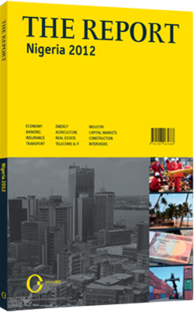This chapter includes the following articles.
Health & Education

Overall indicators in Nigeria paint a picture of a country in need of developing its health sector, but prospects for growth and further modernisation are bright, as the industry has been improving gradually. Funding for health care in Nigeria tends to be low, at approximately $13 per capita annually. The 2012 federal budget allocated some $1.81bn for the sector, amounting to 5.9% of the total. Rural areas lag far behind urban centres in terms of the number of medical services and professionals available. The introduction of a number of new programmes will serve to help bridge this divide. In education, the rapid growth of the economy has meant an equally rapid increase in the need for a skilled and educated workforce. Federal and state governments are increasingly looking to the private sector and non-state actors’ participation through partnership and collaboration. A number of partnerships have recently been formed between universities and private sector companies to increase the number of research and development initiatives. Funding for the sector, however, remains low, making up just 8.4% of the budget, well below the 26% recommended by UNESCO for developing countries.
This chapter contains an interview with Paul Orhii, Director-General, National Agency for Food and Drug Administration and Control (NAFDAC).

